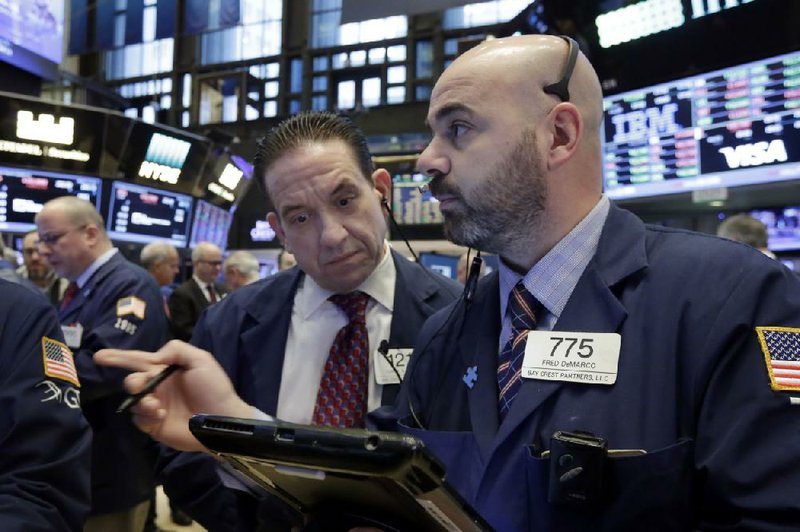LONDON -- Investors around the world are bracing for a series of events this week that have the potential to roil markets. And, for once, they're not directly related to U.S. President Donald Trump.
From the expected start of Britain's official exit from the European Union to the Federal Reserve's discussion of another interest rate increase, there's a lot that could cause volatility and even put a brake on the so-called Trump Bump, the monthslong rally in stocks.
"This week is most unusual from a macro point of view as there is a heavy concentration of 'event risk,'" said Neil MacKinnon, global macro strategist at VTB Capital.
For starters, the British exit from the EU could become a binding, irreversible fact this week.
Since Britain voted to leave the EU last June, nothing happened apart from a sharp fall in the pound. But that period of calm is scheduled to end, with the government expected to trigger, as soon as today, the formal process by which the country leaves the bloc it's been part of since 1973.
Triggering the so-called Article 50 of the EU treaty begins two years of divorce negotiations. They will focus on how Britain leaves the bloc and on creating a new trade deal with the EU, its main export market.
It's unclear how big the market reaction may be to the announcement of the Article 50. Traders will have come to expect it to happen eventually, which could mean the pound doesn't drop too sharply on the day.
In the longer-term, however, it means British markets will be subject to a daily barrage of headlines on how the negotiations are going.
"It will prove challenging for the government to manage expectations over a two-year period, and negotiating setbacks may be reflected in heightened financial market volatility," said James McCormack, Global Head of Sovereign Ratings at Fitch.
And complications could arise, as evidenced Monday by the decision from the Scottish government to call for another independence referendum from the United Kingdom. That is directly related to June's exit vote, when Scotland voted overwhelmingly to remain part of the EU.
Another factor this week will be the Federal Reserve's apparent plan to allow another quarter-point interest rate increase at the conclusion of a two-day meeting on Wednesday, which will take the benchmark Fed rate up to a range of 0.75-1.00 percentage point. That won't be a surprise -- it's a near unanimous opinion among experts in the markets following a raft of positive economic news, including last Friday's stronger-than-anticipated payrolls report.
There will be more interest in what Fed Chairman Janet Yellen says in her subsequent news conference and whether she will indicate that there are more increases to come this year. "The expectations that the Fed will hike three times this year has been rising in recent weeks and the market will be watching the central bank's statement closely for any signs that another move could follow in June," said Jane Foley, a senior strategist at Rabobank International.
The Fed isn't the only central bank meeting this week -- the Bank of Japan, the Swiss National Bank and the Bank of England will all reconsider their monetary policies, potentially moving markets.
In Europe, traders will focus on Wednesday's general election in the Netherlands, and how well populist anti-EU forces do.
The vote comes at a time of acute tension between the country and Turkey after Turkish ministers were prevented from campaigning in the Netherlands regarding a referendum in Turkey. That prompted Turkish President Recep Tayyip Erdogan to claim that "Nazism is alive in the West."
The question is how the clash will play out in the election: will it boost support for Prime Minister Mark Rutte's conservative party or will it stir up more support for the Party for Freedom, the vehicle of anti-Islam populist Geert Wilders, who wants the Netherlands to leave the EU?
Though Wilders is unlikely to be part of any new government because of how the electoral system works, the level of support he gets will be a gauge of populist sentiment in Europe, where other key elections are scheduled this year.
"A pivot to the right could be cause for concern ahead of next month's French elections," said Tony Cross, market analyst for TopTradr.
In April and May, the French vote in two steps for a new president, with far-right National Front leader Marie Le Pen leading in the first round of votes, according to most polls.
In the autumn, there's a general election in Germany where Chancellor Angela Merkel is likely to be tested severely.
And there's also the possibility of elections this year in Italy and Greece, more economically troubled countries that could further upset confidence in the region.
Business on 03/14/2017
